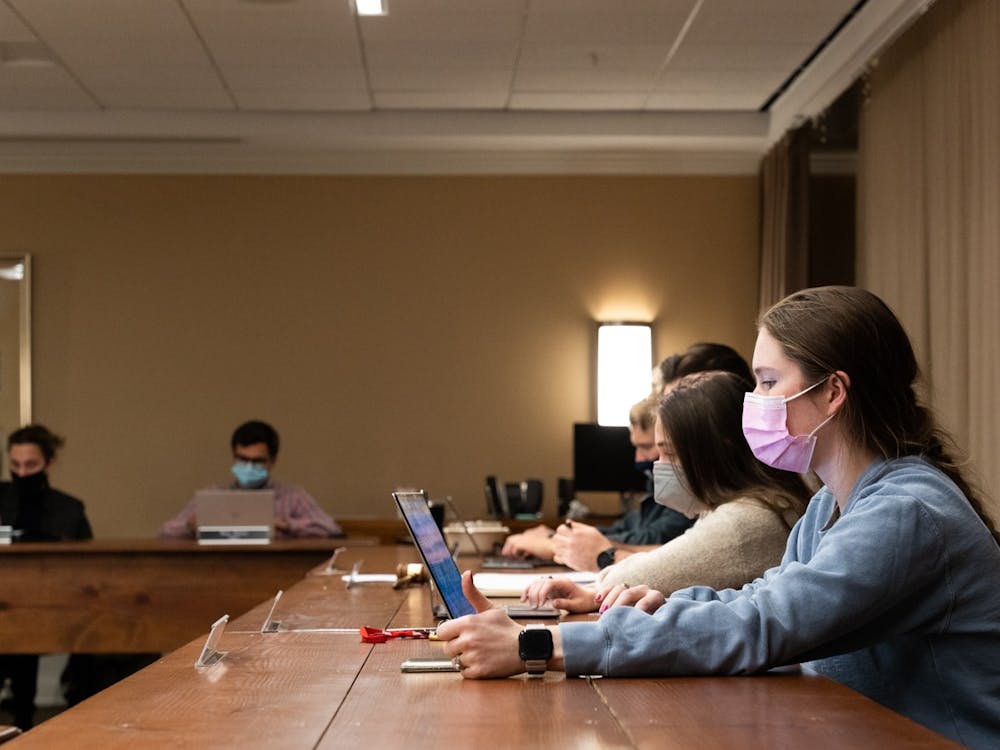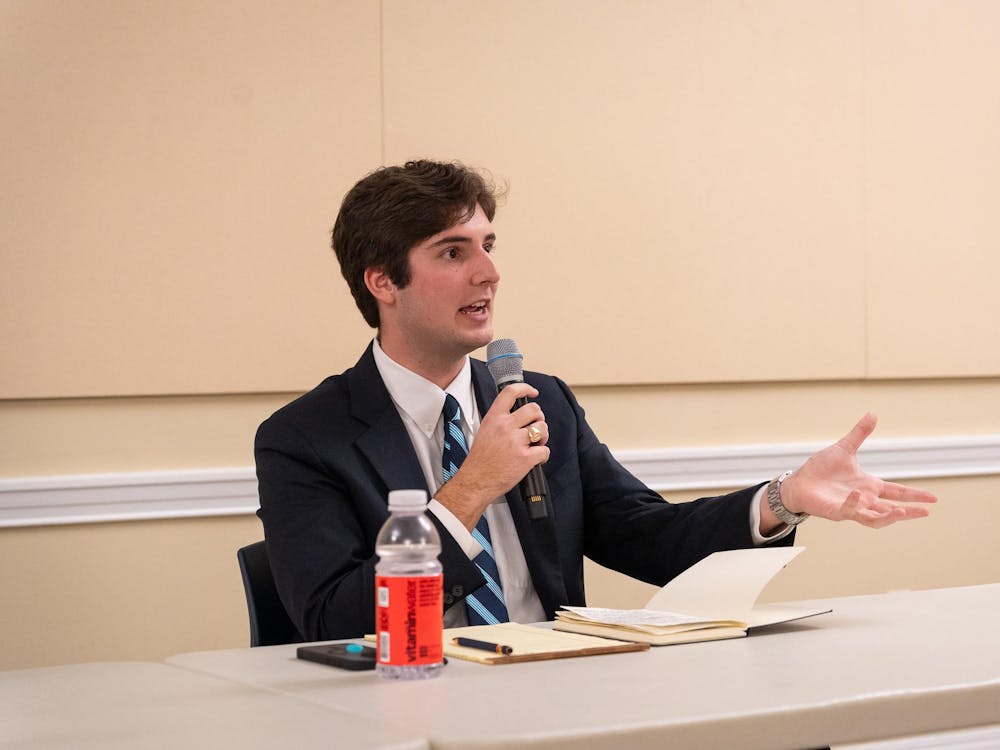The Honor Committee heard updates about Popular Assembly and discussed ways to shorten its lengthy investigative process Sunday. This year, Popular Assembly is themed “Honor — Past, Present and Future” and will run Feb. 28 through March 4.
Held biennially, Popular Assembly allows University community members to express their opinions regarding the Honor Committee’s effectiveness and learn about the history of the Committee as well as its present function.
According to Rep. Caitlin Kreinheder, vice-chair for education and fourth-year Architecture student, the first Popular Assembly event this year is a debate between Jefferson Literary and Debating Society and Washington Society scheduled for this Friday.
Rather than having the two societies compete against each other, each debate team will be made up of one member from each respective organization, and teams will discuss the future of the Honor Committee and single-sanction — specifically, the group will debate the referendum appearing on the spring ballot, which would reduce the sanction for an Honor violation from expulsion to a two-semester leave of absence if passed.
After being introduced by Rep. Christopher Benos, third-year Law student, in the fall and failing to pass internally due to three representatives voting against it, Benos released a petition through the University Board of Elections for the referendum to go to a student ballot in March. 10 percent of students will need to vote in favor of the referendum and 60 percent of those voting will need to be in favor in order for the measure to pass.
Maggie Regnery, vice-chair for Investigations and fourth-year Commerce student, then informed the committee of recent complaints from faculty about the lengthy investigative process — which often continues for months. To respond to this, Regnery presented an idea to the committee on how to shorten the process.
Regnery suggested removing the student and reporter response interviews. When an Honor investigation begins, the accused individual as well as the individual who reported an Honor violation are initially interviewed by an Honor investigator.
During the response interviews — which happen prior to the hearing — an accused individual and the individual who reported the Honor violation are able to hear any information presented by the other and respond to it. For example, the accused individual would listen to the reporter’s interview and correct any misconstruals of the situation as well as answer clarificatory questions posed by the Honor investigators.
Before allowing others to comment, Regenery said she thinks the response interviews are not necessary for the investigative process.
“I would go as far to say rarely is there new information that comes up in those response interviews,” Rengery said.
Rep. Lucian Mirra, third-year Education student, agreed that shortening the investigation process could be beneficial. However, Mirra expressed concern about the proposal because he said the response interviews offer a platform through which the accused and the reporter can offer pertinent clarification about the situation.
If there is not an opportunity for this clarification, Mirra said, the trial may be bogged down by continually having to ensure there is a basic mutual understanding of what occurred, which instead should happen pre-trial through the interview process.
In addition, Mirra expressed concern over the Committee writing and debating another fundamental change alongside the referendum.
“I also am a little bit weary about making major changes to the case processing with referenda on the ballot that may fundamentally change the entire process,” Mirra said.
In order to combat these shortfalls, Mirra suggested a tighter timeline where the student and reporter have a few days to review the information of the other and respond if they so desire. Under the current process, the reporter and student interviews take upwards of a week or longer.
“I definitely advocate for trimming the process down and I like where you’re coming from,” Mirra said. “I just don’t want to completely ditch [allowing individuals the opportunity to formally respond].”
Rep. Holly Torsilieri, fourth-year Medical school student, suggested that the student and reporter should be able to respond to the other during their initial interviews together, rather than having a separate interview to give responses.
“They would have already seen the reporter's interview in their IR packet,” Torsilieri said. “So you can almost add a question [about their response] at the end.”
Andy Chambers, chair of the Honor Committee and fourth-year College Student, said he thinks members shouldn’t be too concerned with undertaking the passage of Benos’ referendum and reducing the response period simultaneously.
Chambers said the passage of Benos’ referendum would — by reducing the sanction for an Honor offense — actually lend itself to reducing the necessary intensiveness of due process required throughout a trial, which limiting the response period would do.
“That's how due process works is lighter sanctions, less due process [is] necessary and so it's going to probably be more in that spirit to have a faster, more efficient system,” Chambers said.
Ultimately, all 18 members in attendance agreed through an unofficial vote that options should be considered involving changes to the response interviews, though they did not settle on a single solution. Jack Stone, vice-chair for community relations and fourth-year Commerce student, was the only member to vote in favor of entirely removing the response interviews from the process.
Only 18 of the 27 Honor Committee representatives were present at Sunday’s meeting, one member short of meeting quorum. The last time the committee met quorum was during the Nov. 3 meeting.
Following the discussion of response interviews, the committee entered closed session to discuss case-specific information.
The next Honor meeting will take place outside of the Committee’s normal meeting time and location on Feb. 27 at 4 p.m. in the Rotunda Dome Room.







